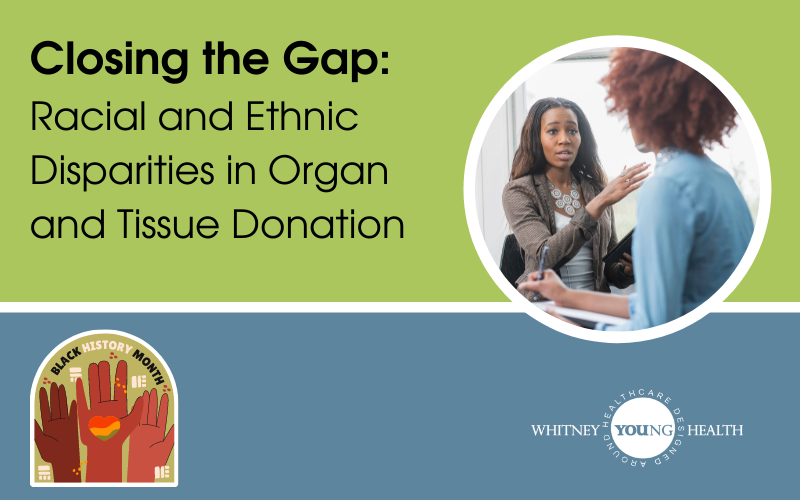
Everyone knows that February 14 is Valentine’s Day, but did you know that it is also National Donor Day, a day to have conversations about organ and tissue donation?
The need for lifesaving organ transplants affects all communities regardless of race and ethnicity, age or sex. However, there is an even greater need for organ transplants among diverse communities and a prevalent need nationally for more people of color to sign up as organ and tissue donors.
Due to racial and economic health disparities, Blacks have higher rates of diabetes and high blood pressure – conditions known to put patients at risk for organ failure – than the white population. Organ transplantation positively impacts patient survival, but greater access is limited by a severe donor shortage. African Americans make up the largest group of minorities in need of an organ transplant.
Why are the disparities so great?
Unfortunately, minority groups also suffer from disparities in deceased and living donation. African-Americans comprise 12.9% of the population and 34% of the kidney transplant waiting list – but only 13.8% of deceased donors.
Barriers to deceased donation among minorities include:
- lack of awareness of transplantation
- religious or cultural distrust of the medical community
- fear of medical abandonment
- fear of racism
Furthermore, African-Americans comprise only 11.8% of living donors, which can be used for commonly-transplanted organs such as kidneys and livers.
Among the factors in low numbers of living donations are:
- lack of awareness about living donor kidney and liver transplantation
- ineligibility to donate due to medical conditions
- lack of support from family and friends
- financial concerns (will I be out of work for a long time?)
- reluctance to ask family members and friends to consider donation,
- unwillingness to donate due to distrust or fear of surgery and the medical community
Helping to meet the need for organ donation
The first step to help increase the number of Black organ donors begins with talking about donation – which is why National Donor Day was created.
You can learn more about health disparities in organ donation on mayoclinic.org.
Additional resources include Donate Life, a national organ donation education and advocacy organization, which has great general information, as well as articles and statistics specifically concerning the need for racial and ethnic diversity among donors, and the Center For Donation and Transplant, based in Albany.
